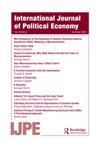A Gathering of Storms: The Impact of COVID-19 Pandemic on the Balance of Payments of Emerging Markets and Developing Economies (EMDEs)
IF 1.3
Q3 ECONOMICS
引用次数: 5
Abstract
Abstract The aim of this article is to track the impact of the COVID-19 pandemic crisis on EMDEs focusing on the performance of their Balance of Payments (BOPs). EMDEs are facing simultaneous hits in their BOPs as they try to cope with the domestic impact of the COVID-19 pandemic. Those impacts call for a rethinking of some aspects of the Keynesian Approach to BOPs while strengthening the view of international financial markets as hierarchical and volatile institutions. The external impacts can be summarized in four channels: (i) The unprecedented capital flight which has led to depreciation, scarcity of hard currency, debt problems and rising spreads in domestic currency; (ii) the fall in commodity prices, a major component of the export basket in most EMDEs; (iii) the contraction in global aggregate demand and supply, which together with lower commodity prices lead to reduced export earnings; and (iv) the decrease in remittances, a major supply of hard currency in several EMDEs and Low-Income Countries (LICs). The concomitant impact of these “storms” has limited the capabilities and efficiency of governments to adopt fiscal and monetary stimulus packages and to respond to the sanitary requirements. Government reactions are also clogged by the large weight of the informal sector in EMDEs.风暴汇聚:新冠肺炎疫情对新兴市场和发展中经济体国际收支的影响
本文旨在追踪新冠肺炎大流行危机对新兴市场国家的影响,重点关注其国际收支状况。emde在努力应对COVID-19大流行对国内的影响时,同时面临着BOPs的打击。这些影响要求我们重新思考凯恩斯主义的国际收支方法的某些方面,同时加强国际金融市场是等级森严和不稳定的机构的观点。外部影响可以概括为四个渠道:(i)空前的资本外逃导致货币贬值、硬通货短缺、债务问题和本币利差扩大;商品价格下跌,这是大多数新兴市场发展中国家出口篮子的主要组成部分;(iii)全球总需求和总供给萎缩,加上商品价格下跌,导致出口收入减少;汇款减少,而汇款是一些新兴市场发展中国家和低收入国家硬通货的主要来源。这些“风暴”的附带影响限制了政府采取财政和货币刺激方案以及应对卫生要求的能力和效率。在新兴市场国家中,非正规部门的巨大比重也阻碍了政府的反应。
本文章由计算机程序翻译,如有差异,请以英文原文为准。
求助全文
约1分钟内获得全文
求助全文

 求助内容:
求助内容: 应助结果提醒方式:
应助结果提醒方式:


